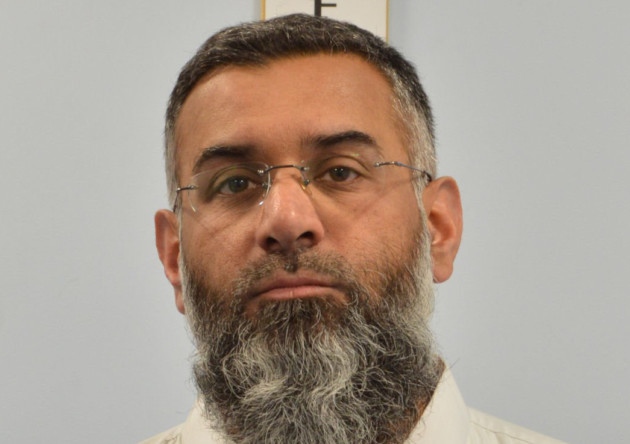به گزارش خبرگزاری اهلبیت(ع) ـ ابنا ـ سیزدهمیـن سوگـواره ملـی دومـین پویـش تولیـد محتـوای دیجیتـال « مهرمحرم » و ششمیـن مسـابقه بیـن المـللی « مهرمحرم » به همت مرکز فناوری اطلاعات و رسانه های دیجیتال وزارت فرهنگ و ارشاد اسلامی و اداره کل فرهـنگ و ارشاد اسلامی استان سـمنان با همکاری مجمع جهانی اهل بیت(ع) و بنیاد بین المللی عاشورا برگزار می شود.
در این راستا، فراخوان این سوگواره در بخش های تولید محتوای عمومی و فیلم کوتاه 3 دقیقه ای، عکس و گرافیک اعلام شد.
آخرین مهلت دریافت آثار 30 آبان 1399 است و از برگزیدگان در بهمن 1399 در ایام ولادت حضرت فاطمه زهرا(س) تقدیر به عمل می آید.
ـــــــــــــــــــــــــــــــــــــــــــــــــــــــــــــــــــــــــــــــــــــــــــــــــــــــــــــــــــــــــــــــــــــــــــــــــــــــــــــــــــــــــــــــــــــــــــــــــــــــــــــــــــــــــــــــــــــــــــــــــــــــــــــــــــــــــــــــــــــــــــــــــــــ
* متن فراخوان سیزدهمیـن سوگـواره ملـی دومـین پویـش تولیـد محتـوای دیجیتـال « مهرمحرم »*
ـــــــــــــــــــــــــــــــــــــــــــــــــــــــــــــــــــــــــــــــــــــــــــــــــــــــــــــــــــــــــــــــــــــــــــــــــــــــــــــــــــــــــــــــــــــــــــــــــــــــــــــــــــــــــــــــــــــــــــــــــــــــــــــــــــــــــــــــــــــــــــــــــــــ
همزمان با فرا رسیدن ماه محرم الحرام 1442 هجری قمری با درنظر گرفتن شرایط ناشی از شیوع بیماری کرونا در ایران و با تأکید بر حفظ سلامت عزاداران حسینی و رعایت دقیق دستورالعمل های بهداشتی، مرکز فناوری اطلاعات و رسانه های دیجیتال وزارت فرهنگ و ارشاد اسلامی و اداره کل فرهـنگ و ارشاد اسلامی استان سـمنان با همکاری نهادهای استانی، ملی و بین المللی برگزار می نمایند:
هدف :
جلب مشارکت عموم مردم برای تولید و نشر محتوای عاشورایی در فضای مجازی و بهره گیری از ظرفیت مردمی با ایجاد پویش تولید محتوای دیجیتال
موضوعات و محورها :
1) آئین ها ونمادهای هیئات خانگی :
- حسینیه ها و روضه های خانگی
- پرچم های محرم و سیاه پوش نمودن فضا
-نوحه سرایی کودکان، نوجوانان و مداحان و ...
- تعزیه خوانی و روایت هنری از قیام عاشورا
2) محرم و مسئولیت اجتماعی عزاداران حسینی در مواجهه با کرونا :
- رعایت دستورالعمل های بهداشتی و حفظ سلامت فردی و اجتماعی توسط عزاداران حسینی
- هیئت ها و تکایای مذهبی ، کانون های فرهنگی هنری مساجد
- هیئت ها و خیمه های مجازی
3) ایده های نو و خلاقانه عزاداری محرم در شرایط کرونایی
4)مقاومت و صبر عاشورایی:
- چهل سال دفاع مقدس با تأسی از قیام عاشورا
5) کمک مومنانه و همدلی حسینی:
- رزمایش ملی مواسات
- نذر ماسک ، نذر ارزاق و ...
6) شخصیت شناسی عاشورا :
- معرفی یاران و دشمنان امام حسین(ع) در قیام عاشورا
* پویش تولید محتوای دیجیتال مهرمحرم در دو بخش برگزار می گردد:
الف) پویش تولید محتوای عمومی
ب) پویش تولید محتوای حرفه ای
روش های شرکت در پویش تولید محتوای عمومی:
1) از طریق نشر محتوا در شبکه های اجتماعی با هشتگ های #مهر_محرم، #حسینیه_همدلی و #الحسین_سفینه_النجاه
2) از طریق نشر محتوا در رسانه های پرمخاطب داخلی
3) از طریق ثبت نام و بارگزاری در بخش پویش سایت
قالب های مورد پذیرش:
محتواهای تولیدی در همه قالب های ویدئویی، گرافیک و عکس می توانند در این پویش شرکت نمایند.
مقررات :
1.شرکت عموم مردم و اهالی فرهنگ ، هنر و رسانه در پویش تولید محتوای «مهرمحرم» آزاد است.
2. محدودیتی در تعداد آثار ارسالی هر فرد در قالب های مورد پذیرش پویش وجود ندارد.
3.محتواهای پویش می تواند با گوشی تلفن همراه تولید شده باشد.
4. جهت اطمینان از شرکت اثر در پویش، شایسته است که اطلاعات مورد نیاز در صفحه ویژه پویش در سایت سوگواره مهر محرم بارگزاری شود.
5. معیارهای فنی، زیبایی شناسی ، محتوایی و تعداد بازدید محتوا از جمله ملاک های تأثیرگذار در داوری پویش می باشد.
6. آثار برتر بر روی سایت سوگواره به نشانی www.MehreMoharram.ir به نمایش گذارده شده و در شبکه های اجتماعی از طریق دبیرخانه پویش بازنشر می گردد.
7. دبیرخانه پویش برای تولید آثار تبلیغی پویش و نمایش آن در فضای مجازی و صداوسیما، اجازه استفاده از آثار را دارد.
جوایز:
- 25 اثر برگزیده پویش عمومی«مهرمحرم» هرکدام: لوح سپاس+ تندیس مهرمحـرم + 10 میلیون ریال هدیه نقدی
ب) پویش تولید محتوای حرفه ای :
قالب ها :
1) فیلم کوتاه 3 دقیقه ای شامل: داستانی کوتاه، مستند، پویانمایی، موشن گرافیک، نماهنگ
2) عکس شامل : تک عکس حرفه ای ، مجموعه عکس
3) گرافیک شامل : پوستر و عکس نوشت، اینفوگرافیک
مقررات :
فیلم کوتاه:
1. ارسال آثار برای عموم آزاد است .
2.حداقل زمان هر فیلم کوتاه 1 دقیقه و حداکثر 3 دقیقه می باشد.
3. امکان بارگذاری تا حجم 20 مگابایت برای هر فیلم کوتاه در سامانه مهرمحرم فراهم گردیده است.لذا کلیه فیلمسازان می بایست نسبت به بارگذاری اثر با فرمت کم حجم اقدام نموده کد رهگیری که سامانه بابت هر اثر تخصیص می دهد را برروی لوح فشرده حاوی فایل باکیفیت اثر نوشته و به آدرس دبیرخانه پست نمایند.
4.اصل فیلم های برگزیده می بایست با یکی از فرمت های DV ، HD ، HDV و FULL HD ارائه شود .چنانچه اثر ارسالی توسط تلفن همراه ساخته شده باشد کلیه فرمت های رایج مورد قبول بوده و ذکر مدل گوشی الزامی می باشد.
5. فیلم های ارسالی باید از تیتراژ ابتدایی و پایانی برخوردار باشند. زمان تیتراژ قابل قبول حداکثر 20 ثانیه می باشد.
6.اخذ تصمیم نهایی درباره هر نکته ای که در مقررات حاضر پیش بینی نشده و یا ابهامات ناشی از مفاد آن در اختیار دبیر مسابقه است و هر گونه تغییر در شرایط مسابقه طی زمان فراخوان باطلاع عموم خواهد رسید.
7.جایزه مسابقه در یک رشته تنها به یک نفر اهدا می گردد .
8..دبیرخانه مسابقه برای تولید آثار تبلیغی و تلویزیونی مسابقه و نمایش آن در فضای مجازی و صداوسیما ، اجازه استفاده از آثار را دارد .
عکس:
1. ارسال آثار برای عموم آزاد است .
2.هر عکاس می تواند با درنظر گرفتن همه موضوعات مسابقه، در بخش تک عکس حرفه ای ملی کلاًتعداد 7 تک عکس و در بخش مجموعه عکس ملی حداقل 4 و حداکثر7 قطعه عکس را ارسال نمایند. در این بخش کلیه آثار می بایستی در محدوده جغرافیایی ایران اسلامی ثبت شده باشند و عکسهای مربوط به راهپیمایی اربعین حسینی در بخش بین المللی مورد پذیرش قرار خواهند گرفت. نگاه های هنری نو و خلاقانه به محرم و قیام عاشورا در این بخش مورد توجه و نظر داوران خواهد بود.
دربخش تک عکس حرفه ای بین المللی، آثار ثبت شده در خارج از مرزهای ایران اسلامی مورد پذیرش قرار می گیرد لیکن بدلیل روشن نبودن وضعیت برگزاری راهپیمایی اربعین در کشور عراق در زمان انتشار این فراخوان، درصورت عدم اجازه حضور زوار غیرعراقی در راهپیمایی اربعین سال 99، آثار دریافتی از راهپیمایی اربعین در داخل ایران اسلامی نیز می تواند در این بخش پذیرش شود.
عکاسان می توانند در این بخش ، تعداد 7 تک عکس و یک مجموعه عکس ارسال نمایند که مجموعه عکس ارسالی می بایست حداقل 4 و حداکثر7 قطعه عکس داشته باشد.
- در مجموعه عکس، عکاس تلاش می نماید سوژه مشخصی را شناسایی و دنبال نماید و با برقراری ارتباط تصویری میان عکسها ، موضوع مورد نظر را به نحو کامل تری بیان نماید از این رو درج توضیحات مربوط به مجموعه عکس (Caption) ضروری می باشد.
3.آثار بايد با فرمت JPEG و سایز ضلع کوچک حداقل 2000 پیکسل با رزولوشن 300dpi با حجم حداقل MB2 ارسال شود.
4.در بخش عکس تجربه (تلفن همراه) هر عکاس می تواند تعداد 7 تک عکس را بافرمت JPEG وسایز ضلع کوچک حداقل 1500 پیکسل با ذکر مدل گوشی تلفن همراه ارسال نماید.
5. آثار می بایست با حجم کمتر از 10مگابایت بوده و صرفاً ازطریق بارگذاری هنگام ثبت اثر انجام گیرد.
6.ترجیح دبیرخانه بر دریافت آثار مربوط به به دوسال اخیر یعنی سالهای 98 و 99 می باشد و آثار ارسالی نباید به دوازدهمینسوگواره ملی و پنجمین مسابقه بین المللی عکس «مهرمحرم» ارسال شده باشد.
7.شرکت کنندگان می بایست عکس های خود را با نام خانوادگی خود به صورت انگلیسی و شماره گذاری شده ارسال نمایند، بطور مثال :Amiri1
8. آثار میبایست مستند بوده و از هرگونه دستکاری با نرم افزارهای رایانه ای یا حک و اصلاحی که جنبه مستند بودن عکس را مخدوش میسازد اجتناب گردد.
9. عکس های ارسالی نباید دارای امضاء عکاس، تاریخ ، پاسپارتو ، قاب ، واترمارک و لوگو باشند.
10.به منظور بررسی آثار توسط هیئت داوران در جلسه داوری و جلوگیری از تضییع حق هر یک از عکاسان، شایسته است اطلاعات EXIF همراه تصاویر حذف نشود.
11. برگزارکننده ، کلیه حقوق چاپ و نشر آثار اعم از دیجیتال یا چاپ ورقی و برگزاری نمایشگاههای داخلی وخارجی و نمایش در فضای مجازی را برای خود محفوظ می دارد.
12.عکاسانی که آثارشان برای نمایشگاه انتخاب می گردد می بایست فایل اصلی اثر را با بالاترین کیفیت در مدت زمان اعلام شده به دبیرخانه مسابقه ارسال نمایند.
13.دبیرخانه، ارسال کننده را صاحب اثر میشناسد. در صورتی که خلاف آن اثبات شود اثر از مسابقه حذف و کلیه امتیازات متعلق به آن ابطال میگردد.
14.در صورت برگزاری نمایشگاه فیزیکی عکس، به کلیه شرکت کنندگان در بخش حرفه ای عکس که آثارشان به نمایشگاه راه مییابد، گواهی حضور در نمایشگاه وحق تألیف به مبلغ 1 میلیون ریال برای هر اثراهداء خواهدشد.
15.ارسال آثار به دبیرخانه به منزله پذیرش شرایط خواهد بود.
16. اخذ تصمیم نهایی درباره هر نکته ای که در مقررات حاضر پیش بینی نشده و یا ابهامات ناشی از مفاد آن در اختیار دبیر مسابقه است و هر گونه تغییر در شرایط مسابقه طی زمان فراخوان باطلاع عموم خواهد رسید.
گرافیک :
1. ارسال آثار برای عموم آزاد است .
2.در هر بخش هر گرافیست حداکثر با 3 طرح می تواند شرکت نماید.
3. پوسترها بصورت عمودی و در سایز 70 ×50 با فرمت JPEG با رزولوشن 300dpi ارسال شود.
3.محدودیتی در ابعاد و افقی یا عمودی بودن اینفوگرافیک ها وجود ندارد و آثار ارسالی باید با کیفیت اصلی و وضوح و خوانایی بالا ارسال شوند.
4.کپیبرداری از آثار گرافیکی دیگر، موجب ابطال اثر و مانع از شرکت فرد در سوگواره خواهد شد.
5.آثار ارسالی نباید قبلاً در جشنواره ها و مسابقات داخلی و خارجی حائز جایزه و عنوان برتر شده باشد.
6. برگزارکننده ، کلیه حقوق چاپ و نشر آثار گرافیکی اعم از دیجیتال یا چاپ و برگزاری نمایشگاههای داخلی وخارجی و نمایش در فضای مجازی را برای خود محفوظ می دارد.
7. اخذ تصمیم نهایی درباره هر نکته ای که در مقررات حاضر پیش بینی نشده و یا ابهامات ناشی از مفاد آن در اختیار دبیر تخصصی سوگواره است و هر گونه تغییر در شرایط مسابقه طی زمان فراخوان به اطلاع عموم خواهد رسید.
جوایزپویش تولید محتوای حرفه ای:
1) فیلم کوتاه 3 دقیقه ای :
- برترین اثر داستانی کوتاه:لوح سپاس+ تندیس مهرمحـرم + 20 میلیون ریال هدیه نقدی
- برترین اثر مستند : لوح سپاس+ تندیس مهرمحـرم + 20 میلیون ریال هدیه نقدی
- برترین اثر انیمیشن : لوح سپاس+ تندیس مهرمحـرم + 20 میلیون ریال هدیه نقدی
- برترین اثر موشن گرافیک : لوح سپاس+ تندیس مهرمحـرم + 15 میلیون ریال هدیه نقدی
- برترین اثر نماهنگ : لوح سپاس+ تندیس مهرمحـرم + 15 میلیون ریال هدیه نقدی
2) عکس :
نفر اول : لوح سپاس+ تندیس مهرمحـرم + 20 میلیون ریال هدیه نقدی
نفر دوم: لوح سپاس+ یادبود مهرمحرم + 15 میلیون ریال هدیه نقدی
نفر سوم :لوح سپاس+ یادبود مهرمحرم + 10 میلیون ریال هدیه نقدی
به برترین اثر در بخش مجموعه عکس ملی ، تندیس مهرمحرم + 15 میلیون ریال هدیه نقدی تعلق خواهد گرفت.
3) گرافیک :
- برترین پوستر و عکس نوشت: لوح سپاس+تندیس مهرمحـرم + 10 میلیون ریال هدیه نقدی
- برترین اینفوگرافیک : لوح سپاس+تندیس مهرمحـرم + 10 میلیون ریال هدیه نقدی
آخرین مهلت ارسال آثار: 15 آذر 1399
اختتامیه و تقدیر از برگزیدگان: بهمن 1399ایام ولادت حضرت فاطمه زهرا(سلام الله علیها)–سمنان
آدرس دبیرخانه :
سمنان، بلوارقدس، فرهنگسرای کومش، مجتمع دیجیتال کومش، دبیرخانه دائمی سوگواره بین المللی «مهرمحـرم»، تلفن: 02333332511، کدپستی : 3513698791
پست الکترونیکی:MehreMoharram@gmail.com وبسایت: www.MehreMoharram.ir
دبیران سوگواره :
• دبیرکل سوگواره : آقای میثم قدس پور 09393313711
• دبیرتخصصی پویش تولید محتوای عمومی: آقای محمد علی طاهریان 09392313074
• دبیر تخصصی پویش تولید محتوای حرفه ای– فیلم کوتاه: آقای سعید خجسته فر 09010351496
• دبیر تخصصی پویش تولید محتوای حرفه ای– عکس: آقای سیدعابد میرمعصومی 09032317880
• دبیر تخصصی پویش تولید محتوای حرفه ای – گرافیک : آقای محمد پهلوان 09360654100
ـــــــــــــــــــــــــــــــــــــــــــــــــــــــــــــــــــــــــــــــــــــــــــــــــــــــــــــــــــــــــــــــــــــــــــــــــــــــــــــــــــــــــــــــــــــــــــــــــــــــــــــــــــــــــــــــــــــــــــــــــــــــــــــــــــــــــــــــــــــــــــــــــــــ
* متن فراخوان ششمیـن مسـابقه بیـن المـللی « مهرمحرم » *
ـــــــــــــــــــــــــــــــــــــــــــــــــــــــــــــــــــــــــــــــــــــــــــــــــــــــــــــــــــــــــــــــــــــــــــــــــــــــــــــــــــــــــــــــــــــــــــــــــــــــــــــــــــــــــــــــــــــــــــــــــــــــــــــــــــــــــــــــــــــــــــــــــــــ
همزمان با فرا رسیدن ماه محرم الحرام 1442 هجری قمری با درنظر گرفتن شرایط ناشی از شیوع بیماری کرونا در جهان و با تأکید بر حفظ سلامت عزاداران حسینی و رعایت دقیق دستورالعمل های بهداشتی، مرکز فناوری اطلاعات و رسانه های دیجیتال وزارت فرهنگ و ارشاد اسلامی و اداره کل فرهـنگ و ارشاد اسلامی استان سـمنان با همکاری سازمان های ملی و بین المللی از جمله مجمع جهانی اهل بیت(ع)، اقدام به برگزاری ششمین مسابقه بین المللی «مهرمحـرم» می نمایند.
اهداف:
1- همگرایی و هم افزایی بین المللی در حوزه تولید و نشر محتوای فرهنگی عاشورایی دیجیتال
2- مشارکت در ایجاد وحدت و برادری در جهان اسلام با بهره گیری از پیام های قیام عاشورا
موضوعات و محورها :
1) حسین(ع ) وانسانیت
2) حسین(ع) و امت اسلامی
3) مودت ومحبت اهل بیت(ع)
4) راهپیمایی اربعین حسینی در هر نقطه از جهان
5) مقاومت و صبرعاشورایی: جبهه مقاومت در عراق، سوریه، لبنان، یمن و ...
6) محرم و مسئولیت اجتماعی عزاداران حسینی در مواجهه با کرونا
7) زیارت به نیابت (به تو از دور سلام)
8) مهر اربعین (کمک های مومنانه و اقدامات بهداشتی موکب ها )
قالب ها :
1) فیلم کوتاه 3 دقیقه ای:
داستانی کوتاه، مستند، انیمیشن، موشن گرافیک، نماهنگ
2) عکس :
تک عکس حرفه ای ، مجموعه عکس
مقررات :
بخش فیلم کوتاه:
1. ارسال آثار برای عموم آزاد است .
2.حداقل زمان هر فیلم کوتاه 1 دقیقه و حداکثر 3 دقیقه می باشد.
3. امکان بارگذاری تا حجم 20 مگابایت برای هر فیلم کوتاه در سامانه مهرمحرم فراهم گردیده است. لذا کلیه فیلمسازان می بایست نسبت به بارگذاری اثر با فرمت کم حجم اقدام نموده کد رهگیری که سامانه بابت هر اثر تخصیص می دهد را برروی لوح فشرده حاوی فایل باکیفیت اثر نوشته و به آدرس دبیرخانه پست نمایند.
4.اصل فیلم های برگزیده می بایست با یکی از فرمت های DV ، HD ، HDV و FULL HD ارائه شود .چنانچه اثر ارسالی توسط تلفن همراه ساخته شده باشد کلیه فرمت های رایج مورد قبول بوده و ذکر مدل گوشی الزامی می باشد.
5. فیلم های ارسالی باید از تیتراژ ابتدایی و پایانی برخوردار باشند. زمان تیتراژ قابل قبول حداکثر 20 ثانیه می باشد.
6.اخذ تصمیم نهایی درباره هر نکته ای که در مقررات حاضر پیش بینی نشده و یا ابهامات ناشی از مفاد آن در اختیار دبیر مسابقه است و هر گونه تغییر در شرایط مسابقه طی زمان فراخوان باطلاع عموم خواهد رسید.
7.جایزه مسابقه در یک رشته تنها به یک نفر اهدا می گردد .
8.دبیرخانه مسابقه برای تولید آثار تبلیغی و تلویزیونی مسابقه و نمایش آن در فضای مجازی و صداوسیما ، اجازه استفاده از آثار را دارد .
بخش عکس:
1. ارسال آثار برای عموم آزاد است .
2.در بخش بین المللی عکس، آثار ثبت شده در خارج از مرزهای ایران اسلامی مورد پذیرش قرار می گیرد لیکن بدلیل روشن نبودن وضعیت برگزاری راهپیمایی اربعین در کشور عراق در زمان انتشار این فراخوان، درصورت عدم اجازه حضور زوار غیرعراقی در راهپیمایی اربعین سال 99، آثار دریافتی از راهپیمایی اربعین در داخل ایران اسلامی نیز می تواند در این بخش پذیرش شود.
عکاسان می توانند در این بخش ، تعداد 7 تک عکس و یک مجموعه عکس ارسال نمایند که مجموعه عکس ارسالی می بایست حداقل 4 و حداکثر 7 قطعه عکس داشته باشد.
- در مجموعه عکس، عکاس تلاش می نماید سوژه مشخصی را شناسایی و دنبال نماید و با برقراری ارتباط تصویری میان عکسها، موضوع مورد نظر را به نحو کاملتری بیان نماید از این رو درج توضیحات مربوط به مجموعه عکس (Caption) ضروری می باشد.
3.آثار بايد با فرمت JPEG و سایز ضلع کوچک حداقل 2000 پیکسل با رزولوشن 300dpi با حجم حداقل MB2 ارسال شود.
4. آثار می بایست با حجم کمتر از 10 مگابایت بوده و صرفاً ازطریق بارگذاری هنگام ثبت اثر انجام گیرد..
5.ترجیح دبیرخانه بر دریافت آثار مربوط به به دوسال اخیر یعنی سالهای 98 و 99 می باشد و آثار ارسالی نباید به دوازدهمین سوگواره ملی و پنجمین مسابقه بین المللی عکس «مهرمحرم» ارسال شده باشد.
6.شرکت کنندگان می بایست عکس های خود را با نام خانوادگی خود به صورت انگلیسی و شماره گذاری شده ارسال نمایند، بطور مثال :Amiri1
7. آثار میبایست مستند بوده و از هرگونه دستکاری با نرم افزارهای رایانه ای یا حک و اصلاحی که جنبه مستند بودن عکس را مخدوش میسازد اجتناب گردد.
8. عکس های ارسالی نباید دارای امضاء عکاس، تاریخ ، پاسپارتو ، قاب ، واترمارک و لوگو باشند.
6.به منظور بررسی آثار توسط هیئت داوران در جلسه داوری و جلوگیری از تضییع حق هر یک از عکاسان ،شایسته است اطلاعات EXIF همراه تصاویر حذف نشود.
10. برگزارکننده ، کلیه حقوق چاپ و نشر آثار اعم از دیجیتال یا چاپ ورقی و برگزاری نمایشگاههای داخلی وخارجی و نمایش در فضای مجازی را برای خود محفوظ می دارد.
11.عکاسانی که آثارشان برای نمایشگاه انتخاب می گردد می بایست فایل اصلی اثر را با بالاترین کیفیت در مدت زمان اعلام شده به دبیرخانه مسابقه ارسال نمایند.
12.دبیرخانه، ارسال کننده را صاحب اثر میشناسد. در صورتی که خلاف آن اثبات شود اثر از مسابقه حذف و کلیه امتیازات متعلق به آن ابطال میگردد.
13.در صورت برگزاری نمایشگاه فیزیکی عکس، به کلیه شرکت کنندگان در بخش حرفه ای عکس که آثارشان به نمایشگاه راه مییابد، گواهی حضور در نمایشگاه وحق تألیف به مبلغ 1 میلیون ریال برای هر اثراهداء خواهدشد.
15.ارسال آثار به دبیرخانه به منزله پذیرش شرایط خواهد بود.
16. اخذ تصمیم نهایی درباره هر نکته ای که در مقررات حاضر پیش بینی نشده و یا ابهامات ناشی از مفاد آن در اختیار دبیر مسابقه است و هر گونه تغییر در شرایط مسابقه طی زمان فراخوان باطلاع عموم خواهد رسید.
جوایز:
1) فیلم کوتاه 3 دقیقه ای :
- برترین اثر داستانی کوتاه: لوح سپاس+تندیس مهرمحـرم + 25 میلیون ریال هدیه نقدی
- برترین اثر مستند : لوح سپاس+تندیس مهرمحـرم + 25 میلیون ریال هدیه نقدی
- برترین اثر انیمیشن : لوح سپاس+تندیس مهرمحـرم + 25 میلیون ریال هدیه نقدی
- برترین اثر موشن گرافیک: لوح سپاس+ تندیس مهرمحـرم + 20 میلیون ریال هدیه نقدی
- برترین اثر نماهنگ : لوح سپاس+تندیس مهرمحـرم + 15 میلیون ریال هدیه نقدی
2) عکس :
- به 3 اثر برگزیده بخش تک عکس حرفه ای بین المللی جوایز ذیل تعلق می گیرد:
نفر اول: لوح سپاس+تندیس مهرمحـرم + 25 میلیون ریال هدیه نقدی
نفر دوم: لوح سپاس+یادبود مهرمحرم + 20 میلیون ریال هدیه نقدی
نفر سوم: لوح سپاس+یادبود مهرمحرم + 15 میلیون ریال هدیه نقدی
به برترین اثر در بخش مجموعه عکس بین المللی ، تندیس مهرمحرم + 20 میلیون ریال هدیه نقدی تعلق خواهد گرفت.
آخرین مهلت ارسال آثار: 30 آبان 1399
اختتامیه و تقدیر از برگزیدگان: بهمن 1399 ایام ولادت حضرت فاطمه زهرا(سلام الله علیها)– سمنان
آدرس دبیرخانه :
سمنان، بلوارقدس، فرهنگسرای کومش، مجتمع دیجیتال کومش، دبیرخانه دائمی سوگواره بین المللی «مهرمحـرم»، تلفن: 02333332511، کدپستی : 3513698791
پست الکترونیکی:MehreMoharram@gmail.com وبسایت : www.MehreMoharram.ir
دبیران سوگواره :
• دبیرکل سوگواره : آقای میثم قدس پور 09393313711
• دبیر تخصصی مسابقه فیلم کوتاه: آقای سعید خجسته فر 09010351496
• دبیر تخصصی مسابقه عکس : آقای سیدعابد میرمعصومی 09032317880
...............
پایان پیام/ 268







